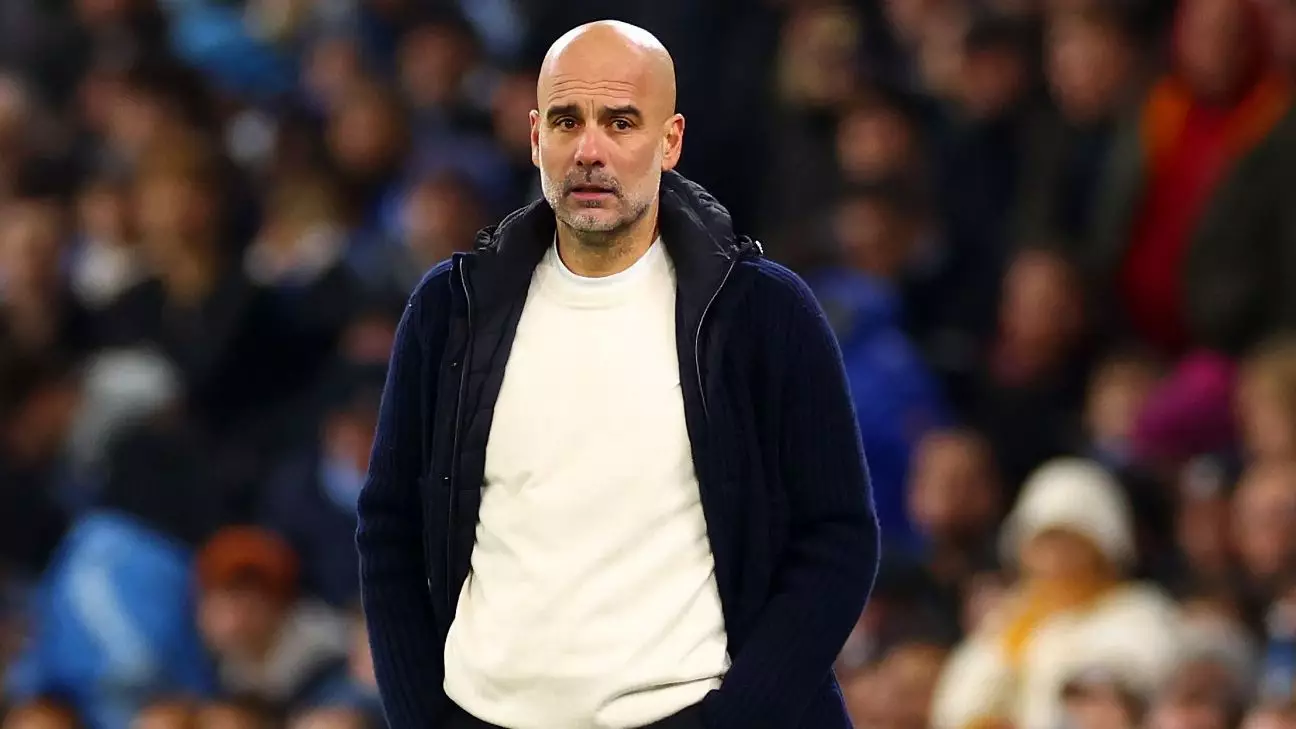In an unexpected twist during the January transfer window, Manchester City made headlines for spending a staggering £175 million on several new signings, including Omar Marmoush, Abdukodir Khusanov, Vitor Reis, and Nico Gonzalez. This flurry of activity contrasts sharply with the club’s historically cautious approach during mid-season. While Etihad’s manager, Pep Guardiola, refutes any speculation that these decisions stem from anxiety over a potential transfer embargo related to alleged financial breaches, there remain questions about the motivations behind this high-profile recruitment.
Contrasting Strategies: A Historical Perspective
Historically, Manchester City has favored a more tempered strategy regarding winter signings, with their last significant acquisition being Aymeric Laporte from Athletic Bilbao five years ago. The January 2023 spending spree deviates from this trend and raises eyebrows regarding the club’s rationale. Guardiola insists that injuries have driven the urgency to bolster the squad, a claim that warrants scrutiny given the magnitude and timing of the expenditure.
The Premier League’s financial rules are at the forefront of concerns for club management. As Manchester City faces 115 charges related to these rules, the acceleration of their recruitment efforts leaves room for speculation. Although players’ injuries have necessitated reinforcements, the underlying context of financial fragility hints at a need for immediate stabilization. The disparity between their historical net spending and the current £175 million outlay poses more questions than answers, especially when juxtaposed against other top clubs.
Guardiola’s statements during press conferences illustrate his fierce defensiveness against the narrative that Manchester City’s success is solely attributable to financial power. By highlighting that the club ranks last among the top six in terms of net spending over the last five years, he aims to challenge the perception that success is merely about monetary investments. Yet, despite these arguments, the reality remains that the injection of wealth has fundamentally changed the landscape of modern football, and City find themselves at the epicenter.
Instead of remaining steadfast in their belief that they are navigating through difficult terrain with financial prudence, Guardiola must confront the clinging narrative that wealth determines success. In doing so, he walks a fine line between defending the club’s honor and acknowledging the challenging implications of their financial practices.
The uncertainties surrounding the outcome of the financial investigation loom large over Manchester City. Guardiola anticipates a verdict within a month, a timeline that adds pressure to the current season and recruitment strategies. The implications of the ruling could vary widely, ranging from minor penalties to severe consequences, such as points deduced from their current standings.
Such an atmosphere breeds a unique kind of anxiety, not just among players and management but across the fanbase. A points deduction could alter the Premier League’s competitive dynamic and diminish the clarity of City’s standing in recent seasons. Guardiola’s optimism about the club’s ability to navigate these pressures may show confidence, but the weight of potential sanctions could create a cloud of uncertainty that affects performance and morale.
Adding complexity to City’s already challenging season is the ongoing injury situation with key midfielder Rodri. With an expectation that Rodri may not return until next season, Guardiola faces the dual challenge of managing current player conditions while integrating new signings into a cohesive unit. The absence of pivotal players often amplifies the necessity for depth in the squad, underscoring the rationale behind City’s aggressive recruitment.
Rodri’s potential absence throughout the critical stages of the Champions League emphasizes the importance of adaptability and preparedness within Guardiola’s philosophy. As new talents settle in, the melding of fresh legs with established frameworks will determine the club’s trajectory both domestically and in Europe.
Ultimately, while Manchester City’s January recruitment may appear to be a decisive tactical shift in response to immediate pressures, it reflects deeper underlying challenges that stretch beyond mere injuries. It raises questions about the club’s long-term vision in light of financial scrutiny and the balance they must strike between bolstering the squad and navigating the murky waters of financial regulation.

